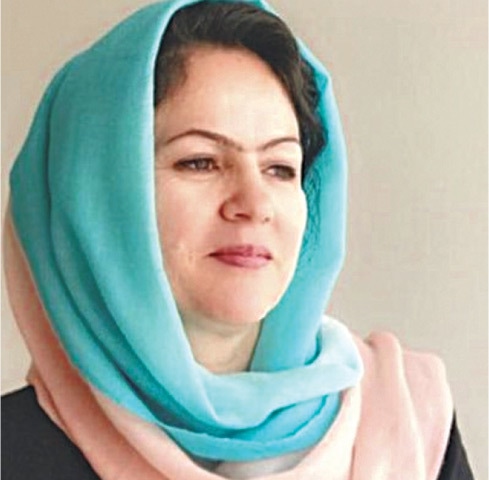
KABUL: Afghanistan’s “fragile gains” in women’s rights are at risk unless women play a key role in peace talks with the Taliban, one of the few female members of the government’s negotiating team has said.
Lawmaker Fawzia Koofi, a vocal critic of the Taliban, is one of five women on the 21-member team announced by the government last week to hold historic talks with the militant group that once banished women from public life.
She pledged to fight for the hard-won gains made by Afghan women since the era of Taliban rule, from education to freedom of movement, as the country seeks to draw a line under more than 40 years of war.
“Women’s role at this critical time in our history is very crucial and pivotal,” said Koofi, 45, a single mother of two daughters and the first woman to set up a political party in Afghanistan.
“They have been victims of war. It is time women start playing their role as peace builders,” she said, warning their “fragile gains” would otherwise be at risk.
The Taliban enforced a strict interpretation of Islamic law that included public lashings, flogging and stonings.
Under their rule from 1996 to 2001, Afghan women were obliged to cover their faces and could not study, work or leave the house without a male relative.
The group, which controls or contests more than 40pc of Afghan territory, has said it would now allow women to be educated and employed, but within the limits of Islamic law and Afghan culture.
The United States and the Taliban reached a peace deal in February, but many Afghan women are concerned that it does not include adequate safeguards for their rights.
It is not clear when negotiations with the Afghan government will begin. A Taliban team arrived in Kabul on Tuesday to start the process of exchanging prisoners, a precondition to the talks.
Meanwhile, Koofi said she had even struggled to get her own, mostly male team to support women’s causes in informal rounds of dialogue with the group last year.
“Narrow-mindedness would be a small, yet gigantic step back,” she told the Thomson Reuters Foundation. “We want and expect men to stand for women’s rights.”
Women have made huge strides since the Taliban were ousted in a US-led invasion in 2001, with growing numbers now finishing their education and finding work in previously male bastions including politics, the police and the judiciary.
Published in Dawn, April 3rd, 2020











































